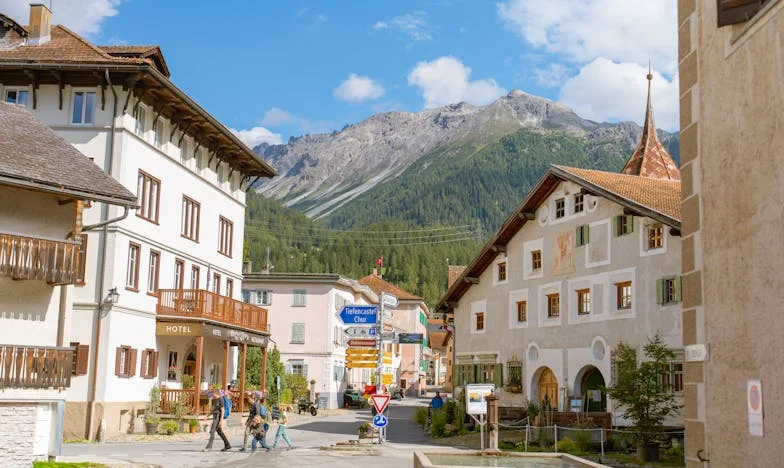Found Under the Oak: How Two Boys Became Our Sons
“There are kids out there, Lisa. Two boys. I think they’re alone.” David’s voice trembled, barely louder than the wind shaking the windowpanes. My hand froze, wooden spoon suspended over the bubbling pot of chili. I could see the steam fogging up the kitchen window, blurring the outline of my husband standing on the porch, his coat damp and muddy.
For one suspended moment, nothing moved. Then the sound of the storm broke the silence, and I turned off the stove, heart pounding. “What do you mean, kids? Where?”
“Under the old oak. They’re soaking wet. They look… scared, Lisa. Really scared.”
I rushed outside, slippers squelching in the mud. The oak tree loomed at the edge of our property, a place where neighborhood kids sometimes played, but this was no game. Two boys, maybe eight and five, huddled together beneath a drenched fleece blanket. Their faces were pinched with cold and fear, eyes darting between us as we approached.
David knelt down. “Hey there, I’m David. This is Lisa. Are you hurt?”
The older boy pulled his brother closer, lips pressed in a hard line. “We’re fine,” he said, voice barely audible. “Please don’t call anybody.”
I knelt in the mud, eye-level with them. “We’re not here to hurt you. Let’s get you warm, okay?”
They followed us inside, wary and silent. I wrapped them in towels, made cocoa, and watched as they gulped it down, eyes still fixed on the door. My mind raced with questions: Where were their parents? How long had they been out there? What had they run from?
David called the sheriff, but the line was busy—storm damage everywhere. I stared at the boys, heart twisting. The older one—Eli, we later learned—flinched when I reached to brush a leaf from his brother’s hair.
“Why don’t you stay here tonight?” I said gently. “It’s safer than going back out in the storm.”
They nodded, exhaustion overtaking fear. I tucked them into the guest room, listening to their breathing slow. In the hallway, David and I whispered.
“We can’t just let them go. Something’s wrong.”
“I know,” I said. “But what if their parents come looking? What if…” I trailed off, haunted by the bruises I’d glimpsed on Eli’s arm.
The next morning, the sheriff finally arrived. The boys’ story tumbled out in broken pieces: their mom had left them with her boyfriend, who drank and shouted and sometimes hit. When he fell asleep, they ran. No one had reported them missing. No one was looking for them.
The state wanted to place them in foster care, but something in me rebelled. David squeezed my hand, his eyes shining with tears. “We can do this, Lisa. They need us.”
I had always imagined children: birthday parties, scraped knees, lullabies. Not social workers, court dates, or trauma-induced nightmares. But the boys needed us now—not someday, but now.
The weeks that followed were a blur of paperwork, home visits, and sleepless nights. Eli checked the locks every evening, haunted by fear. Little Ben wet the bed, clinging to me until my arms ached. Friends whispered behind our backs—”They’re not your kids. Why get involved?”—but I ignored them. Family dinners became battlegrounds; my sister, Julia, couldn’t understand. “You don’t know what you’re getting into. They’re damaged. You can’t fix them.”
But love is not about fixing; it’s about staying. Some nights, I sat on the kitchen floor, crying. I wasn’t sure I was strong enough. “What if Julia’s right? What if I ruin them even more?”
David would kneel beside me, his voice steady. “All we can do is love them. That’s all.”
Slowly, things changed. Ben started to laugh—quick, startled giggles that filled the house. Eli learned to look me in the eyes, to trust that I wouldn’t yell or hit or leave. We went to therapy, learned about trauma, about how to rebuild a sense of safety. There were setbacks: screaming fits, broken plates, nights when Eli hid in the closet and Ben sobbed for hours. But we kept showing up. We kept loving them.
I’ll never forget the first time Eli called me Mom. It was a Saturday, the scent of pancakes in the air, sunlight slanting through the kitchen blinds. He stood in the doorway, awkward and uncertain. “Mom? Can I have more syrup?”
I nearly dropped the plate. David squeezed my shoulder, tears in his eyes.
We officially adopted them that spring. The judge’s gavel came down, and our family was real—not by blood, but by something fiercer.
Not everyone understood. Julia stopped coming by, claiming we’d chosen strangers over family. The neighbors gave us looks, talked in low voices about “those kids from the system.” But I stopped caring. I knew the truth: family is chosen, built in the quiet moments of trust and forgiveness.
Some nights, I still lie awake, wondering about their birth mom. Did she love them? Was she safe? And I wonder, too, about the boys’ future—the scars they’ll carry, the struggles ahead. But when I hear Ben’s laughter, see Eli’s drawings taped to the fridge, I know we did the right thing.
I never wanted to be a hero. I just wanted to do what was right. If love means anything, it’s this: taking broken things and making them whole again—together.
Sometimes I ask myself: What if we hadn’t gone outside that night? What if we’d closed the door, turned back to our ordinary lives? Would anyone have saved them? Or did we save ourselves, too, by choosing love over fear?
